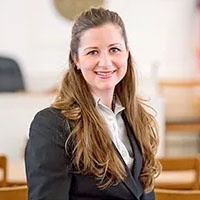Ahoskie Trusts Lawyer, North Carolina
Not enough matches for Ahoskie Trusts lawyer.
Below are all Ahoskie Estate lawyers.
Stephanie B. Irvine
Estate, Collaborative Law, Divorce & Family Law
Status: In Good Standing Licensed: 36 Years
H. Lawrence Armstrong
Civil Rights, Personal Injury, Family Law, Wills & Probate
Status: In Good Standing
James Chadwick Hinton
Real Estate, Wills & Probate, Estate Planning
Status: In Good Standing Licensed: 15 Years


